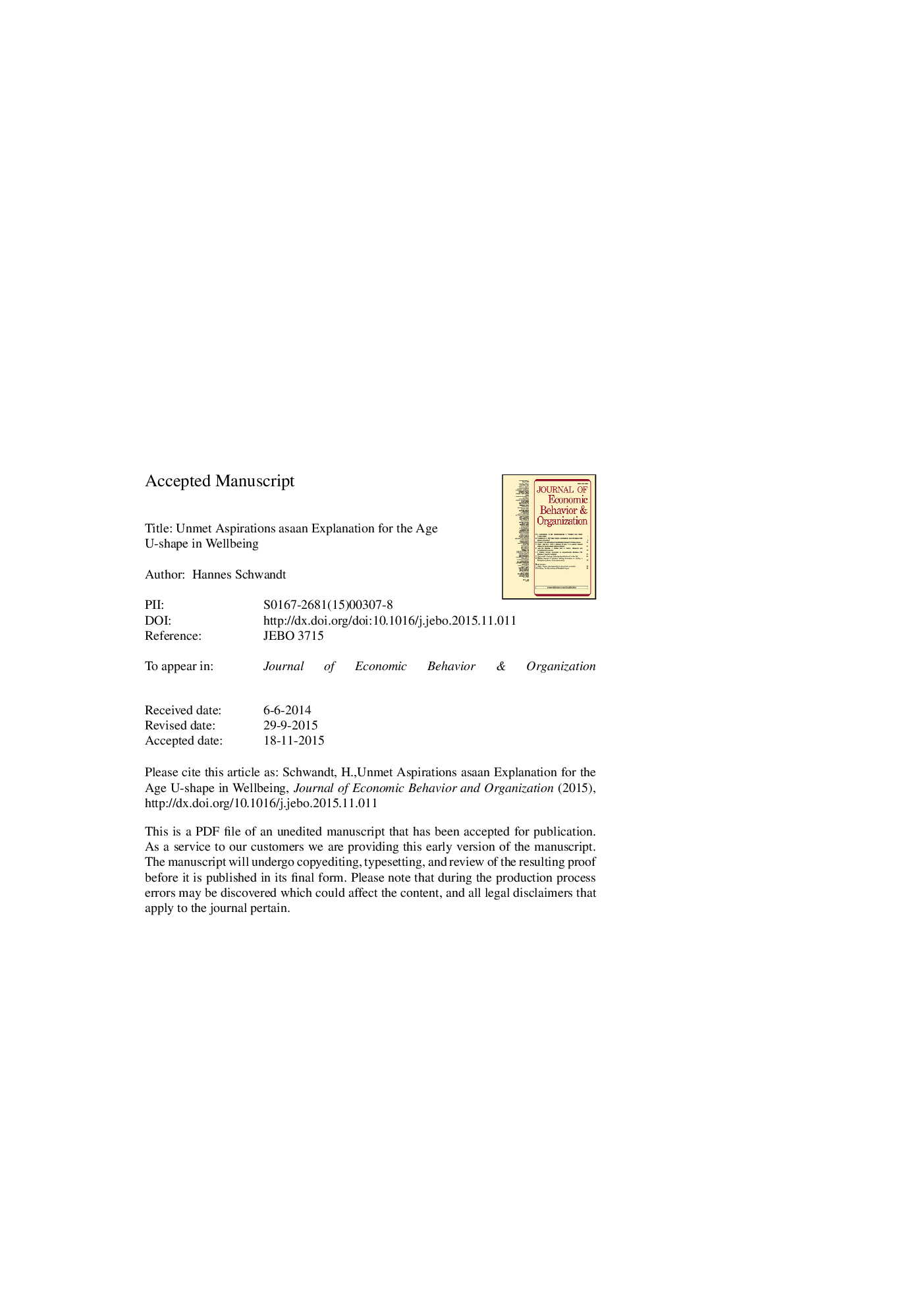| Article ID | Journal | Published Year | Pages | File Type |
|---|---|---|---|---|
| 7242870 | Journal of Economic Behavior & Organization | 2016 | 40 Pages |
Abstract
An emerging economic literature has found evidence that wellbeing follows a U-shape over age. Some theories have assumed that the U-shape is caused by unmet expectations that are felt painfully in midlife but beneficially abandoned and experienced with less regret during old age. This paper is the first to analyze age patterns in unmet expectations. Using the German Socio-Economic Panel, a unique data set that contains life satisfaction expectations as well as the same individuals' subsequent life satisfaction realizations, I match 132,609 life satisfaction expectations to subsequent realizations. I find people to err systematically in predicting their life satisfaction over the life cycle. They expect - incorrectly - increases in young adulthood and decreases during old age. These errors are large, ranging from 9.8% at age 21 to â4.5% at age 68. They are stable over time and observed within cohorts and individuals as well as across socio-economic groups. These findings support theories that unmet expectations drive the age U-shape in wellbeing.
Related Topics
Social Sciences and Humanities
Economics, Econometrics and Finance
Economics and Econometrics
Authors
Hannes Schwandt,
